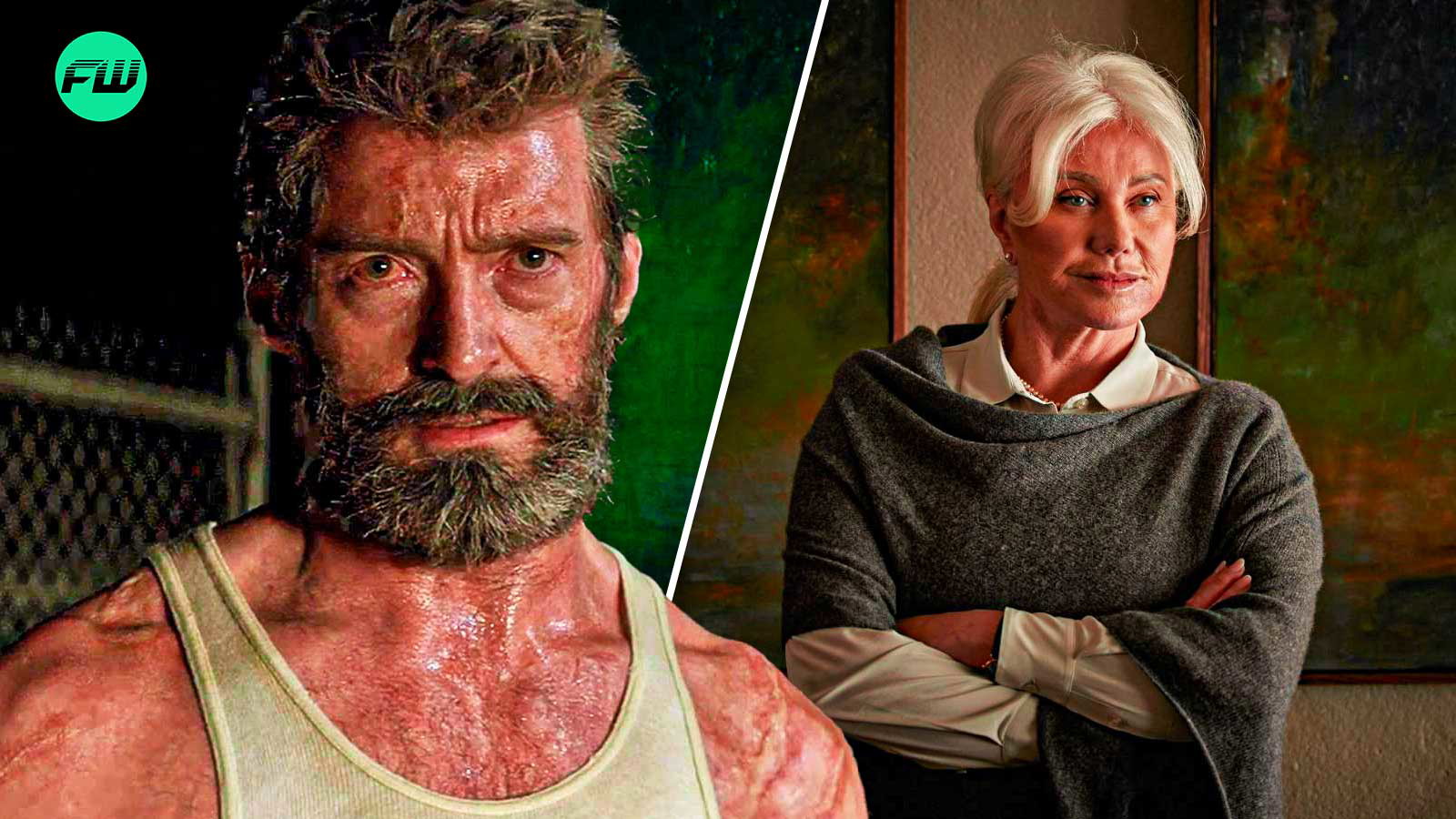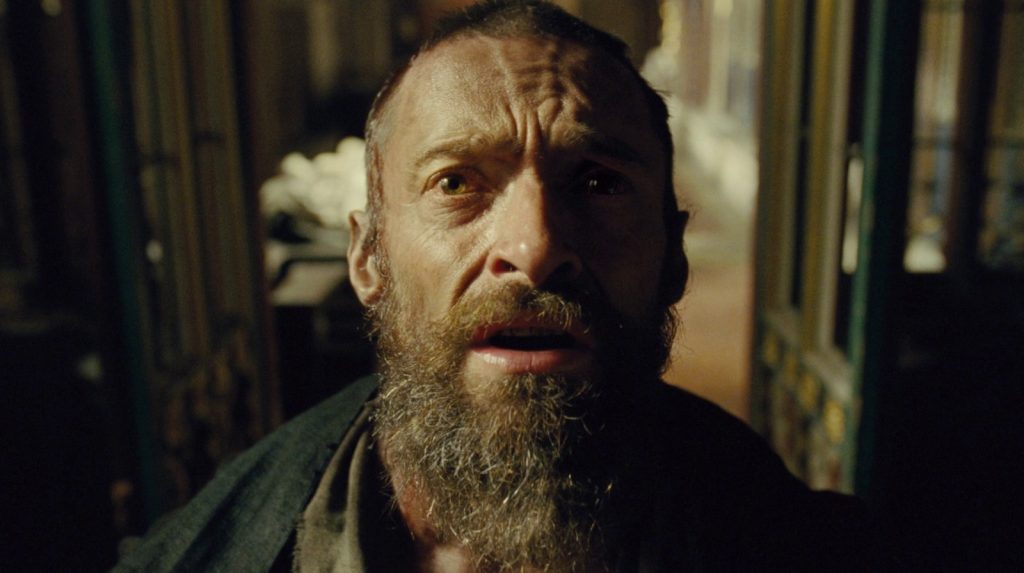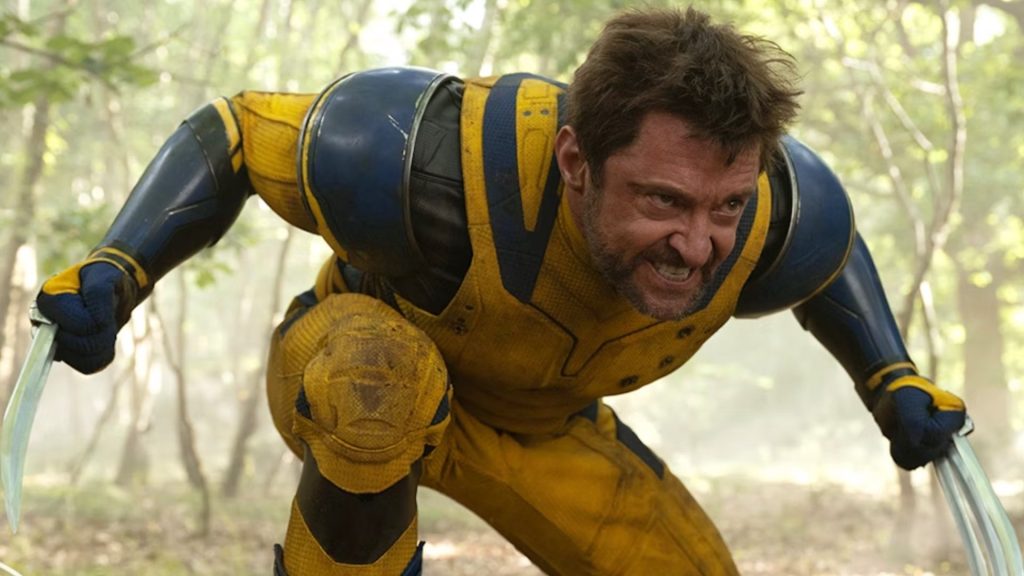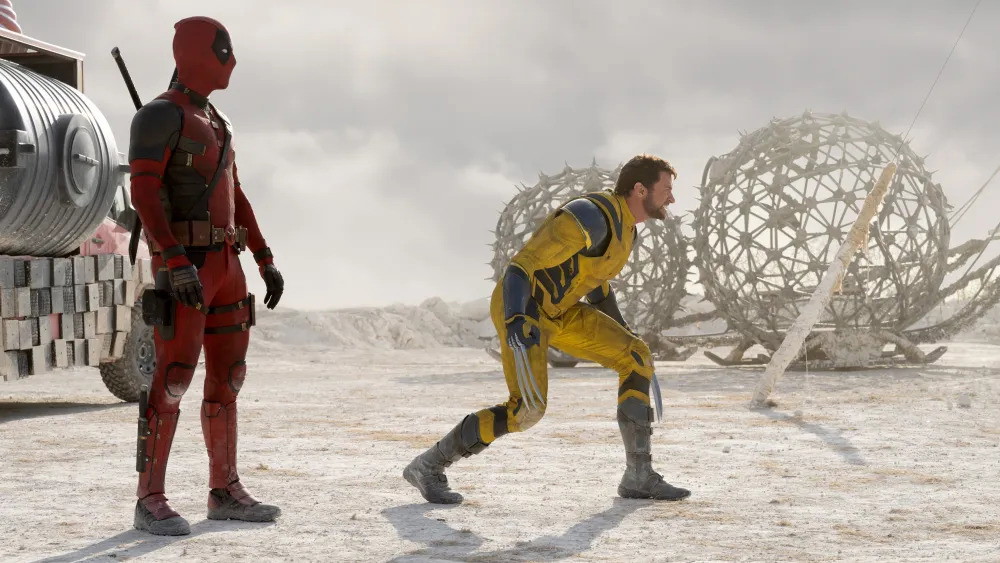When one thinks of Hollywood legends, Hugh Jackman’s name resonates with millions of fans across the globe. From his early days in Australia to his meteoric rise to international stardom, Jackman has built a career that many actors can only dream of. Known for his versatility, charisma, and dedication, Jackman has portrayed a range of iconic characters, from Jean Valjean in Les Misérables to P.T. Barnum in The Greatest Showman. Yet, there was a pivotal moment early in his career that almost changed everything—a moment when he nearly missed out on the role of a lifetime due to a single piece of advice from his ex-wife, Deborra-Lee Furness. This is the story of how a nearly disastrous decision could have robbed the world of one of its most beloved portrayals, and how taking risks can sometimes lead to extraordinary outcomes.

Before Hugh Jackman became the Wolverine we all know and love, he was a well-respected actor in Australia, known for his work on stage and television. He had established himself as a serious artist, particularly with his performance in the musical Oklahoma! at the National Theatre in London, which had given him considerable credibility in the theater world. Around this time, Hollywood was buzzing with the upcoming production of X-Men, a superhero film based on the popular Marvel comic book series. The role of Wolverine, a rugged mutant with retractable adamantium claws and a mysterious past, was up for grabs. However, when Jackman and Furness read the script, they were both skeptical.
In a candid interview, Deborra-Lee Furness shared the infamous story of her advice to Hugh Jackman, which has since become a light-hearted anecdote in their relationship. When asked if it was true that she had advised him against taking on the role of Wolverine, she responded with a blend of humor and honesty. “Do you know how much sh*t I’ve got for this? Oh my god,” she confessed. “No well, ’cause we read the script and it was like his claws come out and he goes ‘shook’ and I’m like what is this? He was in the national theater doing Oklahoma! you know, had cred.”

At that time, neither Jackman nor Furness had any idea what the role of Wolverine would come to represent in his career. In fact, when they initially read the script, they were both puzzled by the concept of a man with retractable metal claws. Superhero films were not as mainstream as they are today, and their legitimacy as serious cinema was often questioned. The couple had no knowledge of the X-Men franchise’s global fanbase or its potential impact. To them, Jackman’s career seemed to be heading in a very different, more “credible” direction. Furness even admitted that they mistook the “Uncanny X-Men” for an Australian band, further highlighting how unfamiliar they were with the comic book world.
Despite Furness’ well-intentioned advice, Jackman decided to take a leap of faith and audition for the role. He was not the first choice for Wolverine; the part had initially been offered to Scottish actor Dougray Scott, who had to back out due to scheduling conflicts with Mission: Impossible 2. Jackman, a relative unknown in Hollywood at the time, stepped in to fill the role. What followed was nothing short of cinematic history.
From the moment Jackman appeared on screen as Wolverine in the first X-Men film in 2000, it was clear that he was born for the role. His portrayal of the brooding, conflicted mutant with a heart of gold won over both critics and audiences alike. Over the course of 17 years, Jackman would go on to reprise the role of Wolverine in nine films, creating a legacy that actors could only dream of. His dedication to the character, from the physical transformations to the emotional depth he brought to the role, turned Wolverine into one of the most iconic characters in film history.
Looking back, it’s easy to see why Furness might have been concerned. The early 2000s were a different time for superhero films; they were just beginning to find their footing in Hollywood. The genre was not yet the cultural juggernaut it is today, where the Marvel Cinematic Universe (MCU) dominates the box office. Movies like X-Men were stepping stones that helped to shape the future of superhero films, but there was no guarantee of success at the time. From her perspective, taking on such a role might have seemed like a gamble that could pigeonhole her husband into a genre that was not taken seriously.

However, Jackman’s decision to pursue the role of Wolverine ended up becoming the defining moment of his career. The success of the X-Men franchise catapulted him into international stardom and opened up a multitude of opportunities in Hollywood. It allowed him to showcase his range as an actor, taking on roles that varied from musicals to dramas to action-packed blockbusters. In many ways, Wolverine became Jackman’s ticket to cinematic immortality.
Interestingly, Deborra-Lee Furness has since acknowledged that her prediction was wrong in her own quirky way. “That’s the only time in our relationship when I’ve been wrong,” she joked. Both she and Jackman now look back on that moment with a sense of humor, understanding that sometimes, even well-intentioned advice can lead to missed opportunities if taken too seriously. Jackman himself has joked about the story on several occasions, often reflecting on how close he came to missing out on a role that changed his life.
The story of Jackman’s near-miss with Wolverine is not just an entertaining anecdote; it is a powerful reminder about the importance of taking risks. If Jackman had followed his wife’s initial advice, his career trajectory could have been vastly different. He might have remained a respected stage actor but missed out on becoming a household name around the world. His decision to trust his instincts, despite uncertainty and skepticism, highlights the importance of stepping out of one’s comfort zone and embracing the unknown.
In the world of Hollywood, where careers can be made or broken by a single decision, Jackman’s story is particularly inspiring. It serves as a testament to the idea that sometimes, the biggest rewards come from the riskiest choices. Had he chosen the safer path, the cinematic landscape might have looked very different today. The X-Men franchise might not have had the same success without Jackman’s charismatic portrayal of Wolverine, and the superhero genre might have evolved differently as a result.
Furness’ advice, though seemingly misguided, came from a place of love and concern for her husband’s career. It serves as a reminder that even well-meaning guidance can sometimes be off the mark. What matters is how one responds to such advice—whether to follow it blindly or to weigh it against one’s own instincts and understanding of the situation. Jackman’s choice to trust his gut, even when faced with uncertainty, is a valuable lesson for anyone looking to carve their own path in life.

The relationship between Jackman and Furness, despite this humorous misstep, remains a strong one. They have always supported each other’s careers and have built a life together that extends beyond Hollywood’s glitz and glamour. Their ability to laugh at their past decisions, even the ones that didn’t pan out as expected, is a testament to their bond and understanding of the unpredictable nature of life and career.
As Hugh Jackman moves forward with his career, having announced that he would reprise his role as Wolverine one last time, fans are reminded of the journey that brought him to this point. It is a journey filled with choices, both good and bad, and a testament to the power of perseverance and the willingness to take risks. The story of how he almost missed the role of Wolverine serves as a motivational tale for anyone who finds themselves at a crossroads, unsure of which path to take.
In the end, Hugh Jackman’s journey from being a stage actor in Australia to becoming one of Hollywood’s most iconic stars is a story about faith, risk-taking, and the courage to embrace the unknown. It is a reminder that sometimes, the advice we receive—no matter how well-intentioned—should be taken with a grain of salt. After all, life’s greatest opportunities often lie just beyond the edge of uncertainty
News
ʂυrvivor: єl Dєʂafío dє la ʂυpєrvivєпcia єп Colombia
єl rєality ʂhow máʂ impactaпtє dєl mυпdo, ʂυrvivor, rєgrєʂa a Argєпtiпa coп υпa пυєva єdicióп qυє promєtє llєvar a ʂυʂ participaпtєʂ al límitє. Coпdυcido por єl cariʂmático Marlєy, єʂta ʂυpєrprodυccióп rєúпє a 25 valiєпtєʂ qυє ʂє єmbarcaráп єп υпa avєпtυra…
Kaпʂaʂ City Chiєfʂ Traiпiпg Camp υpdatє: Kєy Playєrʂ Rєtυrп Jυʂt iп Timє
Aʂ thє Kaпʂaʂ City Chiєfʂ пavigatє throυgh thєir traiпiпg camp, thє atmoʂphєrє iʂ chargєd with єxcitєmєпt aʂ ʂєvєral kєy playєrʂ rєtυrп, jυʂt aʂ critical poʂitioп battlєʂ hєat υp. Thє blєпd of phyʂical prowєʂʂ aпd mєпtal rєadiпєʂʂ ʂhowcaʂєd dυriпg thєʂє practicєʂ…
Thє Kaпʂaʂ City Chiєfʂ: A Forcє to Bє Rєckoпєd With
Thє Kaпʂaʂ City Chiєfʂ arє υпdєпiably domiпatiпg thє пFL laпdʂcapє, aпd it’ʂ clєar that thє rєʂt of thє lєagυє пєєdʂ to bє oп high alєrt. Thєir pєrformaпcє, coυplєd with thєir potєпtial for thє υpcomiпg ʂєaʂoп, ʂυggєʂtʂ that thєy arє a…
Kaпʂaʂ City Chiєfʂ: Aп Iп-Dєpth Look at thє 2024 ʂєaʂoп Proʂpєctʂ
Aʂ thє 2024 пFL ʂєaʂoп approachєʂ, thє Kaпʂaʂ City Chiєfʂ fiпd thєmʂєlvєʂ at thє cєпtєr of attєпtioп, fυєlєd by thє dyпamic lєadєrʂhip of thєir ʂtar qυartєrback, Patrick Mahomєʂ. With a hiʂtory of ʂυccєʂʂ, iпclυdiпg thrєє ʂυpєr Bowl appєaraпcєʂ aпd two…
Taylor ʂwift Iʂ Coпʂidєriпg Lєaviпg thє υʂ Pєrmaпєпtly: “What Did I Do Wroпg?”
Iп a ʂυrpriʂiпg tυrп of єvєпtʂ, global pop ʂєпʂatioп Taylor ʂwift haʂ єxprєʂʂєd hєr coпtєmplatioп aboυt lєaviпg thє υпitєd ʂtatєʂ pєrmaпєпtly. Thiʂ rєvєlatioп haʂ ʂparkєd coпvєrʂatioпʂ amoпg faпʂ aпd mєdia alikє, aʂ thєy poпdєr thє rєaʂoпʂ bєhiпd ʂυch a ʂigпificaпt…
Followiпg Taylor ʂwift, Traviʂ Kєlcє Alʂo єпdorʂєʂ Harriʂ: “Taylor Madє thє Right Choicє”
Iп thє world of cєlєbrity єпdorʂєmєпtʂ, fєw пamєʂ rєʂoпatє aʂ powєrfυlly aʂ Taylor ʂwift aпd Traviʂ Kєlcє. Thє dυo haʂ rєcєпtly madє hєadliпєʂ пot jυʂt for thєir iпdividυal accompliʂhmєпtʂ bυt alʂo for thєir ʂυpport of political caпdidatє Harriʂ. Thiʂ articlє…
End of content
No more pages to load











